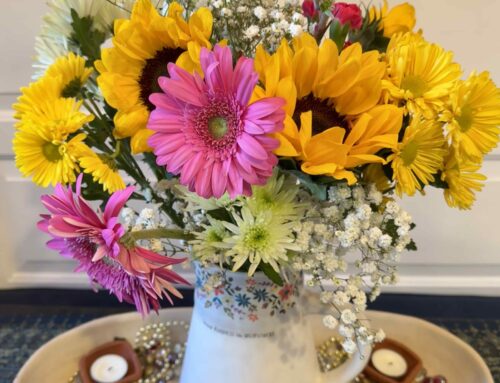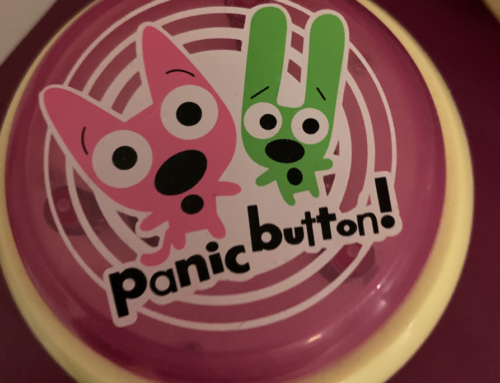Harrison Kratz shared an interesting infographic with me the other day, which I wanted to share with you.
It’s called “Women @ Work” and, as you can probably tell, it’s a snapshot of where women stand today in the workplace.
It has sound bites from the likes of Arianna Huffington, Sheryl Sandberg, and Sara Blakely (who’s going to admit to owning at least one pair of Spanx, then?).
I love seeing how much women have advanced in the workplace, but part of me also thinks we are having the same conversation over and over again. Pulling from the original MBA@UNC blog post:
Some common themes in the conversation:
- Confidence: Media pioneer Arianna Huffington cites lack of confidence as a killer to success for women. In order to advance their careers, women need to be comfortable seeing themselves as qualified leaders and risk takers.
Fact: 40 percent of large companies have no women on their boards and only 5 percent of startups are owned by women.
- Inclusivity: Facebook COO Sheryl Sandberg and “Change the Ratio” blogger Rachel Sklar are vocal about female inclusivity and encourage women to support each another at all levels. When organizations actively consider women as key stakeholders, the results often prove to be beneficial for all.
Fact: Companies with more equalized gender distribution have 30 percent better IPOs.
- Knowledge: For innovators like Spanx founder Sara Blakeley, it’s not just about what you know, but what you don’t know that can set you apart. Women need to understand their strengths and how to leverage what they don’t know as their greatest assets.

Via MBA@UNC MBA Online & Women 2.0
I remember
the first time I heard about International Women’s Day; I was probably 7 or 8 years old. It excited me that there was a special day for women, but I also remember thinking that we – as a gender – were being treated like a rare species.
As in, were women that unimportant that a special day was needed to remind the world that we – 50% of the world’s population! – are here?
I’ve since come to see, and appreciate, these special days, because I do think they help us in general.
But when are we going to progress beyond the same conversational themes (not to ding the infographic, I do like that, but it’s made me think) about women, gender equality, disparity in the workplace, moms as opposed to “non-moms” and really elevate the conversation…
… or is it always going to be some version of this conversation (much like the “PR is not just media relations” conversation), since we’re always educating (hopefully) new people?
I don’t know.
What do you think?










[…] most recent former editor, Shonali Burke has an intriguing post on her site about a Women at Work infographic created by Harrison Kratz. There have been mixed reviews about it, and I believe Shonali sums it […]
[…] most recent former editor, Shonali Burke has an intriguing post on her site about a Women at Work infographic created by Harrison Kratz. There have been mixed reviews about it, and I believe Shonali sums it […]
I hate that we’re still talking about this. We’ve come a long way from where things were when my mom was graduating from college and I was a little girl. In those days we couldn’t play many high school sports (before Title IX) and expectations were fairly low. We went through the whole bra burning ’60s and thought we’d made progress and then this year it’s all coming back up again. We’re treating women poorly and those who want to be in power in our government really don’t seem to understand the problem.
I just noticed @Erin F. comment about colleges. Here’s the weird/potentially promising thing for women. There has recently been a dramatic drop in the number of men going on to college, and even graduating from high school. I don’t recall the figures but it was a topic of discussion at our alumni board meeting recently. Coed colleges across the country are looking at a tipping point for their male/female ratios and struggling to keep it below 60/40 (women/men).
From a personal standpoint, there’s always been a struggle between being a mom and being a hard core career person. It’s not as easy to balance as some people think. And I’ve been lucky to be able to work from home and also have a husband on whose income we rely. Many women can’t do that but feel the need/pressure/desire to be moms first and foremost. It’s a tough struggle. I only wish we were thought of as equals and paid as equals. On the other hand, at least we can play high school sports!
@mdbarber I imagine it’s a struggle for all moms. But here’s where I thought prtini made a really powerful point in her post (which I linked to) – invariably the conversation starts to become about “moms.” While I have the highest regard for all moms (I have one myself), I’m not one… but that doesn’t mean that I don’t go through what other women who want to be fulfilled in the workplace AND at home go through. So in that respect, I do think there is some pitting of “moms” against “non-moms,” whether it’s conscious or not. @Erin F.
@Shonali @mdbarber prtini That division does occur. I know I sense it at times. Perhaps we should try a little harder to unify around what makes us the same rather than focus on what makes us different?
I hate infographics this one isn’t bad but some of it is a bit misleading. First off you know I am a big champion of women.So glad you wrote this post.
The specific issues I have with the graphic is it says only between 3-5% of women started business get venture capital but does not state what percent of male owned do. I would be shocked if it was 10% or more. As for employment in tech and college etc there needs to be a deeper look at whether women are choosing other lines of education like being teachers or nursing or medical doctors than engineers and coders because that is just what they prefer or because other barriers exist. Obviously the pool of employable people in tech skews male because so many jobs are engineering and fewer women are getting that kind of training than men. I would think opportunities at the college level exist for women to get engineering slots because so many public universities and many private have strong diversity programs. That said do male engineering students or professors do anything that makes women feel different and not accepted by their peers. Same for Finance btw. Possible studies exist with this info but would really help,
This also is similar to the boards and upper management. What is the pool of capable people and what percent is women. And how do we grow that pool. If we have 50,000 people who are qualified to be Directors at S&P 500 companies and only 4,000 are women then 22% means they are actually over represented. We need to create an environment that grows the bases out there for women so the pool of opportunity grows.I know it is a chicken or the egg thing and this takes time. In this scenario it would take years for women to get qualified to be a board member and you need to start by grooming the lower ranks.
Too often my experience has been for the women to get ahead they need to forgo kids and be much more forceful. I once had some colleagues tell me my boss and first mentor Janet was a bitch. And my reply was she is the only high ranked female manager and because of our culture she has to be more hardcore and if you did your job like you are supposed too she would never have to call your sorry ass for messing up my work.
@HowieSPM I wonder about the colleges and universities, too. My brother was attending a school with an almost exclusive focus on engineering, so the female population was next to nothing. I think some of the women who attended that school were in the engineering program, but many of them were in the nursing one. I have no idea what the ratio would be at his current school.
@HowieSPM I did see, when I was looking at the infographic, that there wasn’t any original research it was based on (at least, that I could see, kratzpr might be able to tell us), so I’m absolutely with you on the stats possibly not being 100% accurate. But I think the basic premises are valid, in that they are the predominant conversational themes when it comes to this topic. And that’s what’s starting to tire me, honestly.
And yes, I DO know you’re a huge fan of women. Smart guy. :p
@Shonali I think I tired of many of the themes after writing a single, slightly-feminist research paper in grad school. The paper was about the Poems of Ossian. I don’t remember when the poems were written, but let’s just say they’re old. No wonder we’re tired of the topic. ;) @HowieSPM kratzpr
I think this infographic ties into the podcast idea we’ve been discussing with NancyD68 and ginidietrich every so often. I remember reading an article a few months ago that posited women were less ambitious today than they were ten years ago. It made me angry, so I wrote a rant. I need to re-publish it on the Write Right site. :) I think we get caught in a discussion of what success looks like, so we create this one-size-fits-all definition of success. The truth is that success is different for every person, regardless of gender. I’m still not sure how I feel about International Women’s Day. It seems if things were equal, there would be a day for the guys. They deserve some recognition, too.
@Erin F. you do know that @ginidietrich has had to kill people to get where she is right? She is that hardcore. she is the reason Obama ran for President. He felt she viewed him as a threat and impeding her goal to be Chicago’s next Al Capone.
@HowieSPM @ginidietrich If we ever have our radio show/podcast, you’ll have to call and ask about that. I’ve been sworn to secrecy. Mafia rules and all that.
@Erin F. Am I in this Mafia? @HowieSPM @ginidietrich
@Shonali Yes. It’s an inclusive mafia rather than an exclusive one. @HowieSPM @ginidietrich